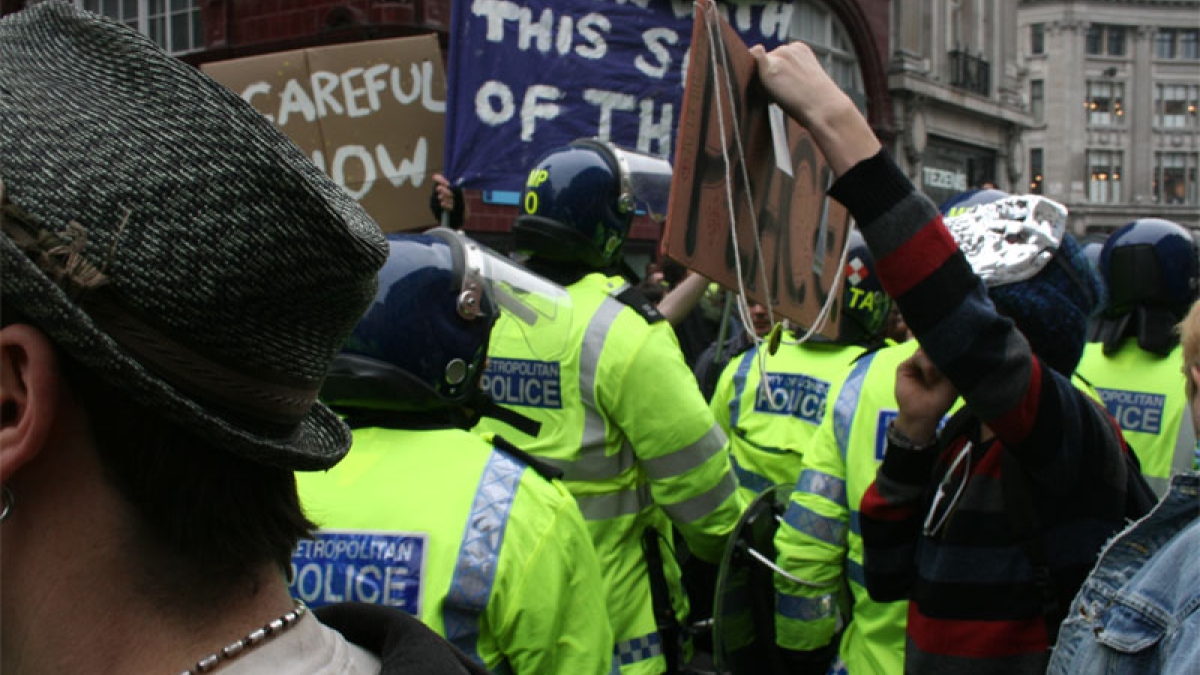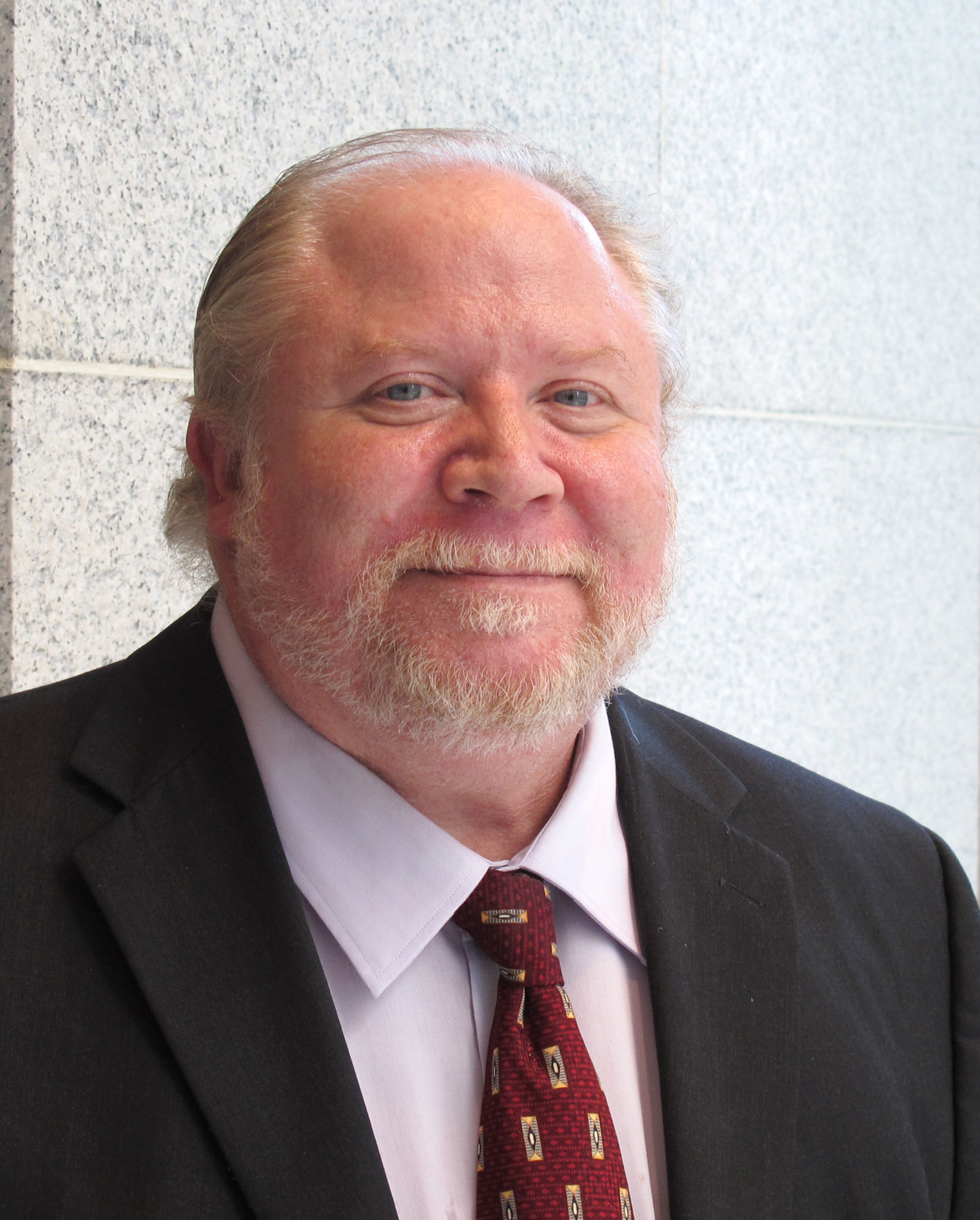As the innovation chief in ASU's Walter Cronkite School of Journalism and Mass Communication, Eric Newton's job is to drive change and promote fresh ways to present news. Sometimes, that includes how we think about the news being distributed.
And as the threat of foreign-born terrorism continues to stoke fear in Americans, the amount of hate speech filtered through mainstream media has become a topic worth considering — both for its validity and its relation to the ideas surrounding freedom of expression.
This past Wednesday, Newton (pictured at left) addressed a meeting of the United Nations Alliance of Civilizations at U.N. headquarters in New York about hate speech in the media.
"As long as people hate, there will be hate speech in the media. We can’t measure it well because we haven’t defined it well," he told the audience at the symposium "Tracking Hatred: An International Dialogue on Hate Speech in the Media."
"... Hate speech can be offensive, reprehensible and emotionally painful. In the U.S. legal context, though, the question of hate speech in the media is mostly a question of ethics. Whether the speech is repeated in the media, how much attention is paid to it, and the issues behind it, how the debate is framed, how we engage with communities we serve as journalists, how we create the good speech that drives away the bad — 'counter speech,' you can call it — all these are questions of personal, journalistic, media or corporate ethics."
He also pointed out that the United State's First Amendment protects hate speech.
"My colleague at Arizona State University, professor Joseph Russomanno, sums it up nicely: 'It is not against the law to hate. It is not against the law to speak. So why would speaking about hate, or even speaking in a hateful way, be against the law?' " said Newton, adding that threatening speech is another matter.
What follows are Newton's thoughts on some of the ethical issues journalism and media professionals could work on more seriously.
Public comments on news stories
Many news outlets in the United States now require people to use their real names when commenting on news stories. Our codes of ethics restrict the use of allowing anonymous sources. We should not have opened our arms to anonymous comments from everyone without really knowing what we were doing. Internet trolls turned traditional media comment sections into sewers. Yet encouraging open and civil debate is part of our function.
The open-source Coral Project, a project of Mozilla, the New York Times and the Washington Post, is worth watching as it takes a new look at how commenters can become communities. (Sydette Harry of Coral reports that anonymous commenting works in communities where consequences of hate speech are known.)
Repeating hate speech in news stories
The Society of Professional Journalists code of ethics calls for respect and compassion. So ethics point to caution. We don’t need to repeat hateful speech if there is a way to describe it and still make the same point. That said, there are times when the public interest outweighs the harm done by offending people. We are offended by the video of a police officer shooting bullet after bullet into an unarmed person. But we should see it.
Issues behind hate
News organizations should find ways to go beyond incidents of hate speech and more deeply cover the underlying issues. The Southern Poverty Law Center has identified hundreds of hate groups across the United States. Not all these groups are violent. Some are. We in journalism have an obligation to investigate those groups. Hate speech plays an important role in identifying those organizations.
Giving voice to the whole community
More newsrooms could embrace the social fault-lines analysis of the late visionary journalist Robert C. Maynard, who argued that our nation will never be the nation it can be until all Americans have front-door access to the truth. Maynard saw our social fault lines of gender, race, generation, geography and class — and I would add ideology — as something traditional media too often ignore.
Some news organizations take seriously their obligation to serve their entire communities. But only a few undertake diversity audits, looking at the demographics of their journalists and the stories they produce. More outlets now are going beyond informing a community to engaging it, reaching out before, during and after news reports. But only a few clearly explain their news choices to the whole community.
Traditional media in the United States are shrinking today primarily because of the economics of digital media. But there is another reason, mostly undiscussed often enough. America’s newsrooms are losing diversity, and the culture gap is growing between mainstream journalists and residents.
Better coverage of the immigration, for example, would include more voices from the border.
Social-media platforms
All businesses face ethical choices. I don’t believe it is ethical for digital media organizations to create long and incomprehensible user agreements. Nor is it ethical to accept users the companies know haven’t read or understood the agreements. It is not ethical for the people who run such platforms to be inaccessible, or to place cookies or other tracking devices on computers without the permission of the owner.
But these practices are common.
It is ethical to have voluntary rules under which a community functions, and to enlist the community to help enforce those, and if content is taken down, to be transparent about why.
International information flows
There is a final point about ethics in a global context. A nation that sets up digital filters at its borders is making its own decisions; the laws will work or they won’t. But increasingly nations are demanding that global technology companies observe these filters.
These companies have business reasons for agreeing to follow all of the companies where they work. Yet they also have an ethical obligation to advocate as strongly as they can for the freedom that created them in the first place. Technology platforms these days are acting more and more like publishers; perhaps their information ethic should begin to resemble the ethic of journalism.
What people can do
If journalists or media people or anyone else does not act ethically, the solution in free societies is for people to raise their voices against them. People protest. They boycott. It works. Good speech drives out bad.
The same idea applies to hate speech. Michael Oreskes from NPR has a good way of describing people power using folk singer Pete Seeger’s banjo, which had a slogan on it that said: “This machine surrounds hate and forces it to surrender.” Says Dr. Andre Oboler of the Online Hate Prevention Institute, the best way to deal with large amounts of hate speech in social media is to recruit a large number of monitors who find and report that speech.
Public education
A major danger of hate speech is how it can provoke actions on the part of people and governments that they later regret. As it turns out, laws that restrict speech are much more easily abused by the state than permissive laws.
Major misunderstandings about the role of freedom contribute to unneeded censorship. Polls show only a tiny fraction of the U.S. population knows the five freedoms of the First Amendment, but large numbers of Americans believe offensive speech can or should be banned.
The last “Future of the First Amendment” study done by the John S. and James L. Knight Foundation said that high schools students know more about their fundamental free-expression rights than do adults. When those high school students graduate, many colleges point them back in the other direction by pushing speech codes that are repeatedly rejected by the courts.
Another of my colleagues at Arizona State University, Dan Gillmor, argues that journalists should as an ethical matter support free expression. Even if journalists are not comfortable being seen as an advocate, I believe they should be experts on the freedom that makes their profession possible. Too many are not. I see evidence of this all the time; just this weekend I read a column in a Florida newspaper flatly declaring that hate speech is illegal in the United States. It isn’t.
News and civic literacy matter. American news organizations have set aside a week every year to tell stories about how freedom of information works. But Sunshine Week is only the beginning of what we could do to promote 21st-century literacies.
We also should keep our eyes open for new media approaches that deserve our support. HeartMob is one. It’s a new online platform that will give women who are being harassed online the support they need to end the harassment. The harassment victim would be surrounded by a “heart mob” of people who will chronicle the harassment, explain the victim’s legal options and provide additional support.
In the end, the lasting problem with hate speech and its many definitions can veer well beyond threatening speech to merely offensive speech, speech that disparages, intimidates or isolates an individual or group.
Yet the larger American experience — from abolition to suffrage to civil rights and gay marriage — is that a framework of freedom is best, and that restrictions on speech must be defined not broadly but narrowly.
The track record of open societies is just as real as the evils of stereotyping, racism, sexism and bigotry.
The past 500 years of human progress are convincingly documented by Steven Pinker in his book, "The Better Angels of Our Nature." Compared with centuries past, Pinker argues that humanity today lives in the best, least violent and healthiest time ever.
Our condition has improved, philosopher Karl Popper said, because of our method of creating common knowledge through a process of conjecture and refutation.
In the end, the engine for all that progress was not an absence of hate speech. It was the presence of freedom.
Newton, who led media innovation for nearly 15 years at the John S. and James L. Knight Foundation, became a Cronkite faculty member in May. He is charged with driving change and experimentation at Cronkite News, the school’s multiplatform daily news operation.
Established in 2005, the U.N. Alliance of Civilizations is a high-level group of experts tasked to explore the roots of polarization between societies and cultures and recommend a practical program of action.
More Law, journalism and politics
Can elections results be counted quickly yet reliably?
Election results that are released as quickly as the public demands but are reliable enough to earn wide acceptance may not always be possible.At least that's what a bipartisan panel of elections…
Spring break trip to Hawaiʻi provides insight into Indigenous law
A group of Arizona State University law students spent a week in Hawaiʻi for spring break. And while they did take in some of the sites, sounds and tastes of the tropical destination, the trip…

LA journalists and officials gather to connect and salute fire coverage
Recognition of Los Angeles-area media coverage of the region’s January wildfires was the primary message as hundreds gathered at ASU California Center Broadway for an annual convening of journalists…



